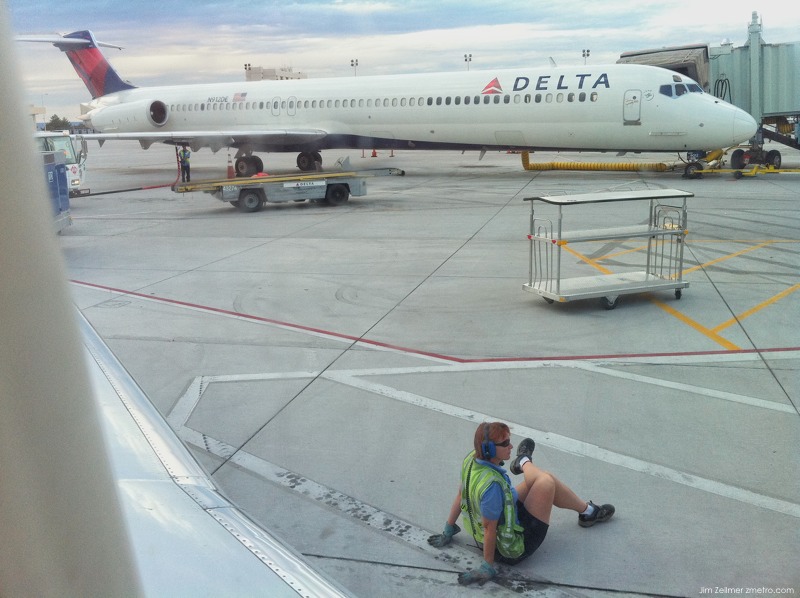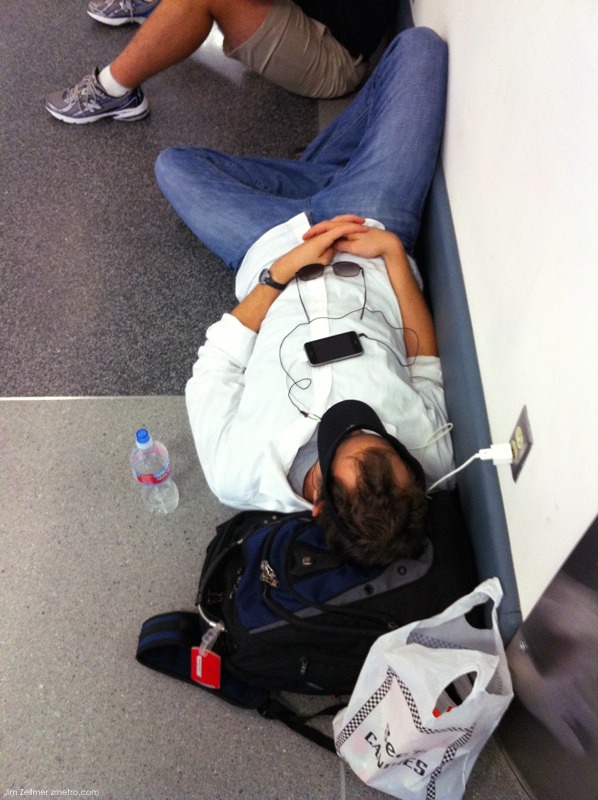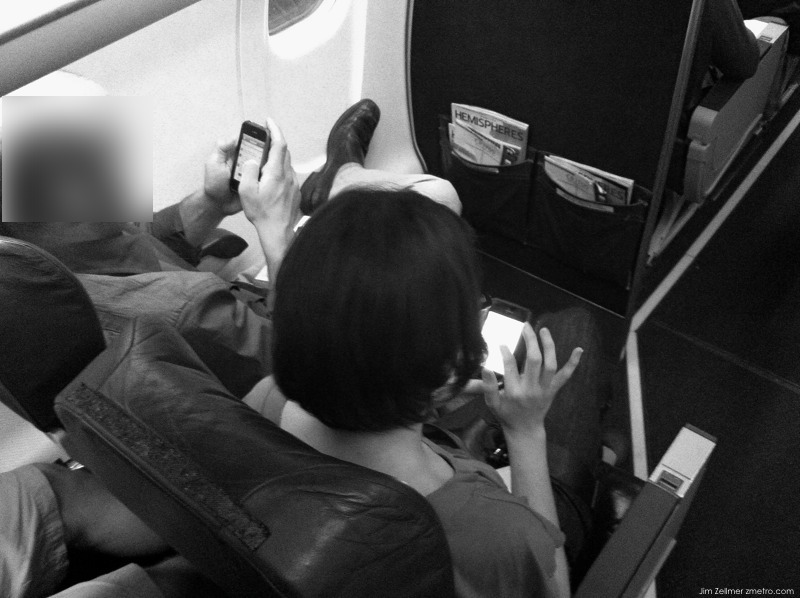“I ACTUALLY think most people don’t want Google to answer their questions,” said the search giant’s chief executive, Eric Schmidt, in a recent and controversial interview. “They want Google to tell them what they should be doing next.” Do we really desire Google to tell us what we should be doing next? I believe that we do, though with some rather complicated qualifiers.
Science fiction never imagined Google, but it certainly imagined computers that would advise us what to do. HAL 9000, in “2001: A Space Odyssey,” will forever come to mind, his advice, we assume, imminently reliable — before his malfunction. But HAL was a discrete entity, a genie in a bottle, something we imagined owning or being assigned. Google is a distributed entity, a two-way membrane, a game-changing tool on the order of the equally handy flint hand ax, with which we chop our way through the very densest thickets of information. Google is all of those things, and a very large and powerful corporation to boot.
Monthly Archives: August 2010
Relocated Designer Labels
Henny Sender and Vanessa Friedman
:
Just weeks after Mr Obama was inaugurated wearing a Hickey Freeman suit, HMX, the Chicago-based owner of that brand as well as Hart Schaffner Marx among others, filed for bankruptcy protection. After an auction in August last year, Mumbai-based SKNL became the latest Asian group to buy a collection of premier western fashion brands.
In doing so, it joined Megha Mittal, of the Indian Mittal steel dynasty, who last year bought the German luxury brand Escada; Li & Fung of Hong Kong, which two years ago snapped up Hardy Amies, couturier to Britain’s royal family; and Hong Kong-based S.C. Fang & Sons, which bought Pringle of Scotland in 2000.
From individual consumers of luxury goods, the Chinese and Indians have become consumers of luxury companies, in a shift that has far-reaching implications for the $80bn (€63bn, £52bn) a year industry. Many of the recent acquisitions have been driven by a wish to raise production standards in Asia and, in the long term, change a tenet of the luxury industry: the importance of production in “country of origin”. The notion that to merit its price tag, a luxury item must be made in the country where it is designed and where its label was born is on the wane.
Protecting your daily in-home activity information from a wireless snooping attack
Vijay Srinivasan, John Stankovic, and Kamin Whitehouse via Bruce Schneier:
Abstract: In this paper, we first present a new privacy leak in residential wireless ubiquitous computing systems, and then we propose guidelines for designing future systems to prevent this problem. We show that we can observe private activities in the home such as cooking, showering, toileting, and sleeping by eavesdropping on the wireless transmissions of sensors in a home, even when all of the transmissions are encrypted. We call this the Fingerprint and Timing-based Snooping (FATS) attack. This attack can already be carried out on millions of homes today, and may become more important as ubiquitous computing environments such as smart homes and assisted living facilities become more prevalent. In this paper, we demonstrate and evaluate the FATS attack on eight different homes containing wireless sensors. We also propose and evaluate a set of privacy preserving design guidelines for future wireless ubiquitous systems and show how these guidelines can be used in a hybrid fashion to prevent against the FATS attack with low implementation costs.
The group was able to infer surprisingly detailed activity information about the residents, including when they were home or away, when they were awake or sleeping, and when they were performing activities such as showering or cooking. They were able to infer all this without any knowledge of the location, semantics, or source identifier of the wireless sensors, while assuming perfect encryption of the data and source identifiers.
A Conversation with Jay Rosen on “The Problem With News Media in America Today”
What is the biggest problem with the news media in America today?
Mr Rosen: The cost of changing settled routines seems too high, but the cost of not changing is, in the long term, even higher. A good example is the predicament of the newspaper press: the print edition provides most of the revenues, but it cannot provide a future. I know of no evidence to show that young people are picking up the print habit. So if the cost of abandoning print is too high, the cost of sticking with it may be even higher, though slower to reveal itself. That’s a problem.
Another example is the decline of trust. In the mid-1970s over 70% of Americans told Gallup they had a great deal or fair amount of confidence in the press. Today: 47%. Clearly, something isn’t working. But revisions to the code of conduct that has led to this decline would be seen by most journalists as increasing the risk of mistrust. I’ve tried to argue that the View from Nowhere—also called objectivity—should be replaced by “here’s where we’re coming from.” That strikes most people in the American press as dangerous and unworkable. But the current course is unsustainable: trust continues to decline, with a big acceleration after 2003. When I mention this to journalists, they say: “Trust in all big institutions has declined, Jay.” Which is true (except for the military). But is that really an answer? You’re supposed to be the watchdogs over dubious actors. Why aren’t you an exception?
I could go on, but I think you see the pattern. Change is too expensive; the status quo is unsustainable.
A Tale of Two Cities
“It was the best of times, it was the worst of times; it was the age of wisdom, it was the age of foolishness …”
— Charles Dickens, A Tale of Two Cities, 1859
For the past 120 days I have pored over economic reports, commerce data, home sales across America, stats on inflationary trends and sales tax reports by state (when they can be found). I’ve sorted the data by date published, then prioritized it by importance to the economy, and looked for correlations positive or negative. But no matter how many times I read over the data, I can come to only one solid conclusion: We have now finished changing into a two-tiered economy.
This change didn’t start with the downturn of the past two and a half years; instead, the completion of our segregation into two financial classes is what directly caused the downturn. No longer is the belief that “there’s the 20 percent of the population that live in poverty and then there’s the rest” a comfortably distant concept.
The discomfort line now divides those who “feel afraid” that they live in poverty-like circumstances, or soon will – even if they are gainfully employed – from “the rest.” And instead of a 20/80 split, have-nots to haves, today it may well be 60/40.
A Four Wheeled Xanax….
The 2011 Nissan Leaf is the world’s first mass-market all-electric automobile, to be built in the hundreds of thousands globally/annually by Nissan beginning this winter. And may I say, thank God and Carlos Ghosn, chief executive of Nissan. Not so much a game changer as a game starter, the Leaf is a five-seat, five-door passenger EV sedan sold from California to Maine, with a nice, round 100-mile estimated range; 0-60 mph acceleration of around 10 seconds; and a top speed of 90 mph. The U.S. price is $32,780 (not counting the $7,500 federal tax credit for EVs) and includes a host of value-added, segment-competitive features, such as Bluetooth, navigation, 16-inch alloy wheels. Such a car would have been science fiction five years ago.
In Hard Times, One New Bank (Double-Wide)
The only new start-up bank to open in the United States this year operates out of a secondhand double-wide trailer, on a bare lot in front of the cavernous Trinity Baptist Church. A blue awning covers the makeshift drive-through window.
Called Lakeside Bank, it is run by a burly and balding former tackle for Louisiana State’s football team named Hartie Spence, who doles out countrified humor along with deposit slips and the occasional loan.
“This is the one place where the cause of death is mildew,” he quipped, standing outside the trailer in withering heat.
A Bit of Humanity on the Tarmac

Air travel is no picnic, though it is possible to see humanity every now and then.
What Did We Do Pre-iPhone?


Mahi Mahi Tacos

Fabulous, inexpensive and a great salad.